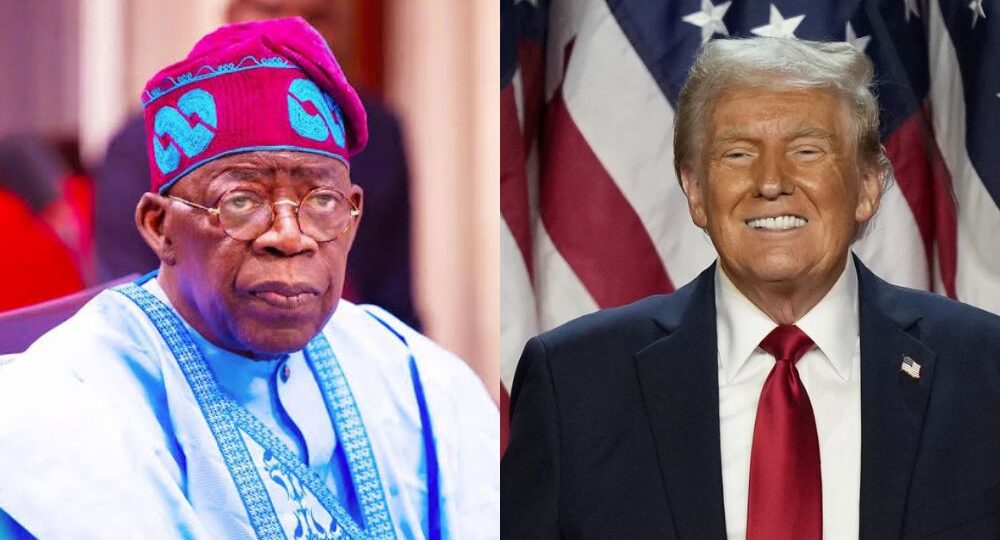A diplomatic earthquake erupted in West Africa in late October 2025, and its aftershocks threaten to destabilize the entire region.
The event was the formal re-designation of Nigeria by the United States as a “Country of Particular Concern” (CPC) for “severe violations of religious freedom.” This move, driven by U.S. political pressure and allegations of “mass killings of Christians” and “genocide,” was met with an immediate and forceful rejection from the Nigerian government, which labeled the designation as based on “faulty data” and a dangerous “misinformation” of its complex security challenges.
This is far more than a war of words. The U.S. President has publicly threatened to “immediately stop all aid” and even “go in… ‘guns-a-blazing.'”
This escalating crisis—pitting a superpower against the “Giant of Africa”—has profound implications for Nigeria’s internal security, its economy, and its leadership of the entire West African bloc. Here is a breakdown of the likely outcomes and potential sanctions.
1. The Sanction Hammer: What the CPC Designation Means
The “Country of Particular Concern” designation is not just a symbolic rebuke; it is a formal U.S. legal tool that “opens the door” for a range of powerful sanctions.
While the U.S. President’s threats of military action have been dismissed by many (including, reportedly, U.S. Africa Command) as unfeasible, the threat of sanctions is very real. These could unfold in two ways:
- Broad Sanctions: This involves the immediate, sweeping cuts to aid that President Trump has threatened. This would impact everything from U.S. support for Nigeria’s military to its massive public health investments.
- Targeted Sanctions (The Likely Path): A new bill, the “Nigeria Religious Freedom Accountability Act of 2025,” is already being advanced in the U.S. Congress. This bill would use the “Global Magnitsky” framework to impose targeted sanctions—like visa bans and asset freezes—on specific Nigerian officials, including state governors and judges, who are accused of tolerating violence or upholding controversial blasphemy laws.
Predicted Outcome: The most probable first step is a “warning shot.” Washington will likely apply these targeted sanctions to a handful of high-profile officials. This allows the U.S. to “send a message” without taking the catastrophic step of cutting off life-saving humanitarian aid (like PEPFAR for HIV) or completely severing the military relationship.

2. The Impact on Insecurity: A “Gift” to Terrorists?
Here lies the central and dangerous paradox of the U.S. position.
The U.S. designation is meant to punish Nigeria for failing to stop insecurity. Yet, the United States is a primary partner in that very fight. The U.S. provides critical intelligence, training, and arms sales that Nigeria’s military relies on to combat Boko Haram and the Islamic State West Africa Province (ISWAP).
Predicted Outcome: A sudden suspension of U.S. security cooperation would be a devastating blow to Nigeria’s counter-terrorism operations.
- It would ground key aircraft needed for surveillance and strikes.
- It would sever the flow of intelligence used to preempt attacks.
- It would halt the training of Nigeria’s special forces.
The Nigerian government is already stretched thin. As its Information Minister, Mohammed Idris, stated, the country’s security challenges are complex, affecting both Muslims and Christians. Removing one of the military’s main pillars of support will not help the victims of violence; it will create a security vacuum that emboldens the very extremist groups the U.S. claims to be targeting.
3. Paralyzing the “Giant of Africa” and Weakening ECOWAS
This crisis couldn’t come at a worse time for West Africa. Nigeria is the current chair of the Economic Community of West African States (ECOWAS) and is its undisputed economic and military backbone.
The region is already facing a severe crisis of legitimacy, with military juntas in the Sahel (Mali, Burkina Faso, Niger) openly defying the bloc. Nigeria is the only power with the political, economic, and military weight to manage this.
Predicted Outcome:
- For Nigeria: The diplomatic row is toxic to the economy. International investors, already wary, will see this as a sign of massive political risk. The “heightened economic risk profile” will “weaken investor confidence,” making President Tinubu’s economic reforms nearly impossible to implement and putting further pressure on the Naira.
- For ECOWAS: A distracted, weakened, and internationally-condemned Nigeria loses all moral and political authority to lead the region. How can its president—who chairs ECOWAS—effectively condemn coups in neighboring countries when his own government is being threatened with sanctions and military action by a superpower?
- For the Region: This dispute effectively paralyzes ECOWAS. This leaves the entire West African region vulnerable, creating a power vacuum that extremist groups and other foreign powers (like Russia and China) will be eager to fill. Tellingly, both the African Union (AU) and ECOWAS have publicly backed Nigeria, rejecting the U.S. claims as “dangerous” and a threat to regional stability.
The Economic Fallout
The diplomatic row is toxic for the economy, creating massive political risk that will “weaken investor confidence” and threaten Nigeria’s economic reforms.
Investor Confidence & Economic Risk
A representation of the key factors creating a “heightened economic risk profile” for Nigeria due to the diplomatic crisis.
The Debt Anchor: Financial Realities
While Nigeria has political motivation to pivot East, the economic reality is that a clean break from Western-aligned institutions is impossible. Nigeria is deeply reliant on multilateral debt, which is largely controlled by the U.S. and its allies.

Final Prediction: A Pivot East
The U.S. is playing a high-stakes game. While it may apply targeted sanctions in the short term, the long-term damage is already done.
This public humiliation and threat to Nigeria’s sovereignty will likely force a strategic realignment. The predicted outcome is that Nigeria will accelerate its pivot away from the U.S., its traditional partner, and “toward closer ties with China or Russia” for the military and economic support it needs.
Ultimately, this diplomatic collision will not solve Nigeria’s complex security crisis. Instead, it risks isolating a key ally, worsening regional insecurity, and leaving millions of civilians—of all faiths—to pay the price.

